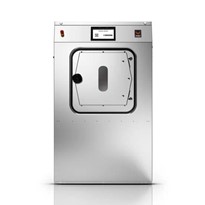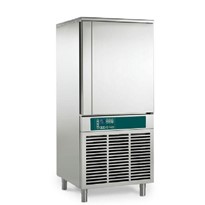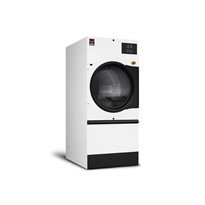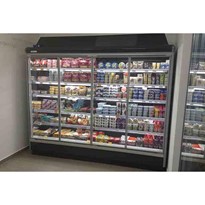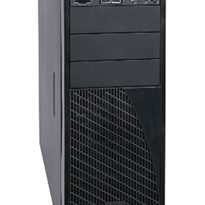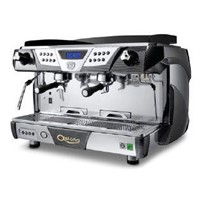Commercial refrigeration plays a crucial role in small businesses across Australia, from cafes and eateries to convenience stores, supermarkets, and more. As a small business owner, choosing and maintaining an efficient refrigeration system can substantially impact your business's success and growth. In this comprehensive guide, we share the essential information you need to navigate commercial refrigeration systems effectively, specifically tailored for small businesses in Australia.
We will explore a range of topics, from understanding various types of commercial refrigeration equipment to highlighting best practices for efficient energy consumption, regular maintenance, and space management. With our experience as a commercial refrigeration supplier in Australia, we're well-equipped to provide you with the guidance you need in every step of your commercial refrigeration journey.
In this guide, you will gain valuable insights into selecting the ideal refrigeration units for your small business, balancing factors such as size, capacity, energy efficiency, and regulatory compliance. We will also discuss the importance of establishing routine maintenance practices to ensure your refrigeration system operates at peak performance, prolongs its lifespan, and maintains a high standard of food safety.
So, let's begin our journey towards unlocking the full potential of commercial refrigeration for small businesses in Australia, driving success, growth, and sustainability for your business in 2024 and beyond.
1. Choosing the Ideal Commercial Refrigeration Equipment
Selecting suitable commercial refrigeration equipment is a critical decision for small business owners. Let's explore essential factors to consider when making this crucial choice:
- Capacity and size: Assess your storage needs and allocate sufficient floor space to house your refrigeration units, considering not only existing requirements but also any anticipated growth in the future.
- Types of equipment: Understand the various commercial refrigeration options available, such as upright fridges, under-counter units, display fridges, and freezers, to make an informed decision aligned with your specific business needs.
- Energy efficiency: Opt for models with high energy-efficiency ratings or innovative features that reduce energy consumption, actively contributing to cost savings and environmental sustainability.
2. Routine Maintenance for Peak Performance
Establishing regular maintenance practices is essential for prolonging the lifespan of your refrigeration system and ensuring optimum performance. Here are vital maintenance tips for small businesses:
- Regular cleaning: Clean your refrigeration units frequently, both inside and outside, including door gaskets, fan blades, and condenser coils. Consistent cleaning reduces energy consumption and prevents potential damage due to wear and tear.
- System inspection: Schedule routine equipment inspections to address potential concerns proactively and assess the overall health of your refrigeration system. Keep an eye on refrigerant levels, temperature accuracy, and equipment functionality.
- Professional servicing: Engage professional technicians for periodic servicing to guarantee your commercial refrigeration operates at peak levels and to identify any potential issues before they escalate into costly repairs.
3. Space Utilisation and Effective Inventory Management
Maximising space usage and efficient inventory management within your refrigeration system is vital for productivity and streamlined operations. Implement these strategies for optimal space utilisation:
- Flexible shelving solutions: Create a flexible storage system using adjustable shelves, drawers, and bins to accommodate various items and containers, enabling efficient use of refrigeration space and a more organised approach to inventory management.
- Smart layout design: Design your refrigeration layout thoughtfully to allow for seamless access, restocking, and navigation, minimising wasted movements and reducing congestion in high-traffic areas.
- Inventory management techniques: Adopt proven methods, such as the "first-in, first-out (FIFO)" approach to minimise food waste and ensure the freshest items are used first, maintaining optimal food quality and safety for your customers.
4. Ensuring Compliance with Food Safety and Regulatory Standards
Rigorous food safety standards are a non-negotiable aspect of commercial refrigeration. Stay compliant and promote food safety with these best practices:
- Temperature monitoring: Consistently monitor and record temperatures within your refrigeration units, ensuring food storage conditions remain within safe, compliant ranges.
- Safe storage practices: Follow safe storage guidelines for perishable items, adhering to local and national regulations pertaining to food and beverage safety.
- Hygiene standards: Prioritise proper cleaning and sanitation procedures for your refrigeration equipment and storage containers, maintaining high hygiene standards to protect your customers and your business reputation.
Conclusion: Empowering Small Business Success with Commercial Refrigeration Insights
Effective commercial refrigeration management is a critical aspect of small business success. By choosing suitable equipment, establishing proper maintenance routines, maximising space utilisation, and adhering to stringent food safety standards, small businesses can thrive and grow in the competitive Australian market.
At Refrigeration Experts, our mission is to empower small businesses with the insights and resources they need to effectively manage their commercial refrigeration systems. Our team of experienced professionals is dedicated to partnering with you on your journey toward success in the world of small business refrigeration. Contact us today to learn more about how our commercial freezers can help your small business reach new heights with our expert advice and support.





-160x160-state_article-rel-cat.png)

